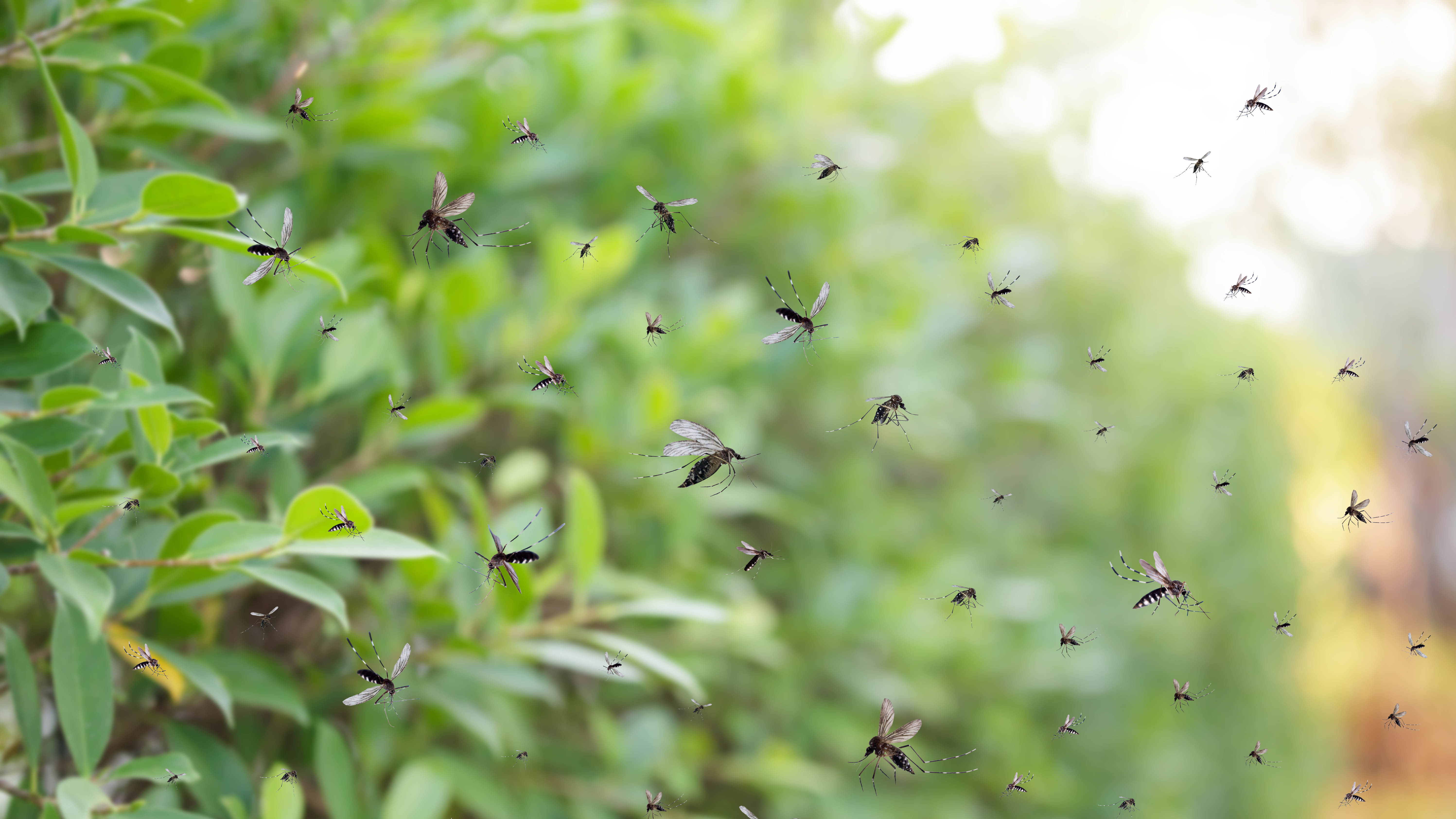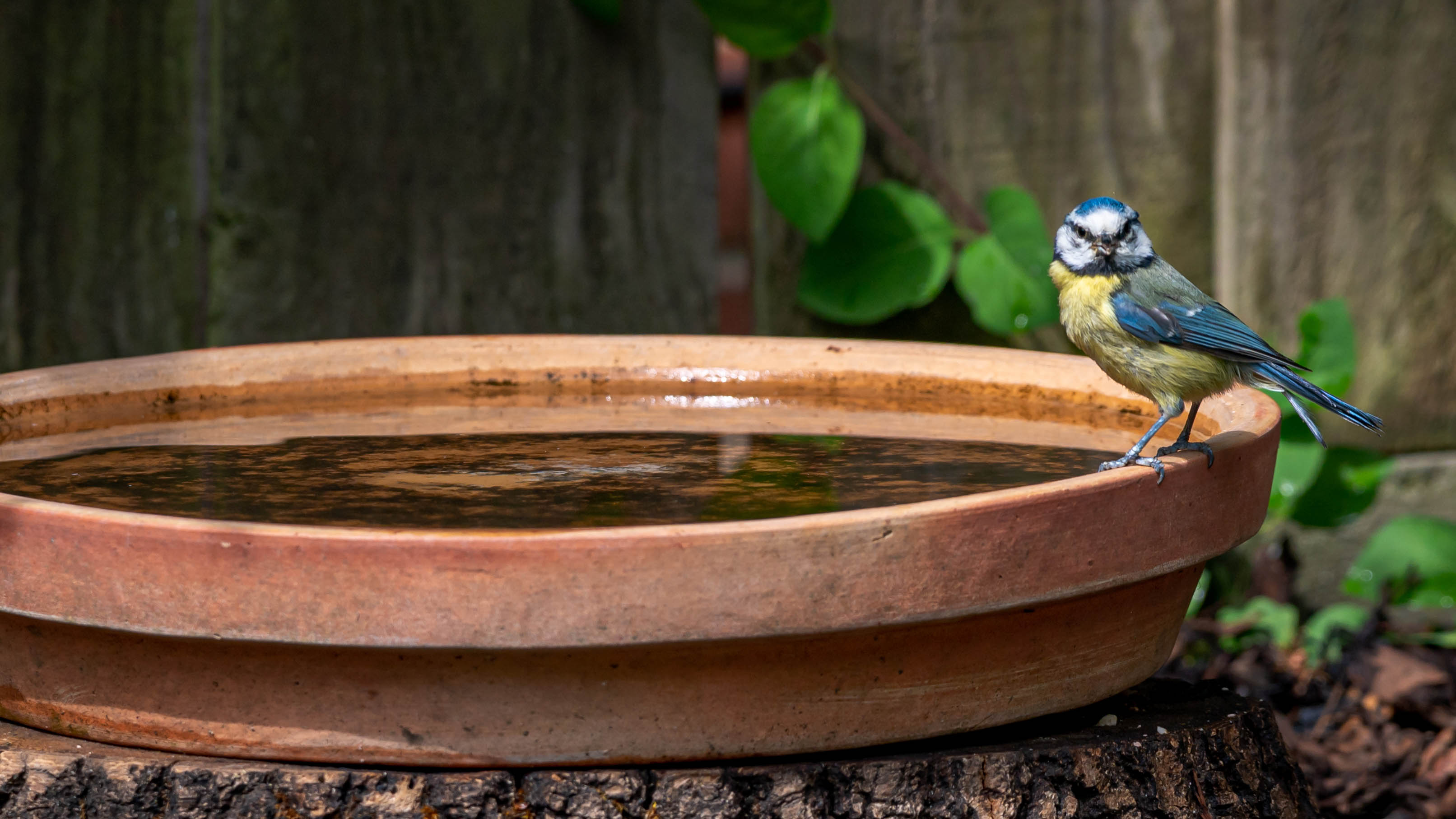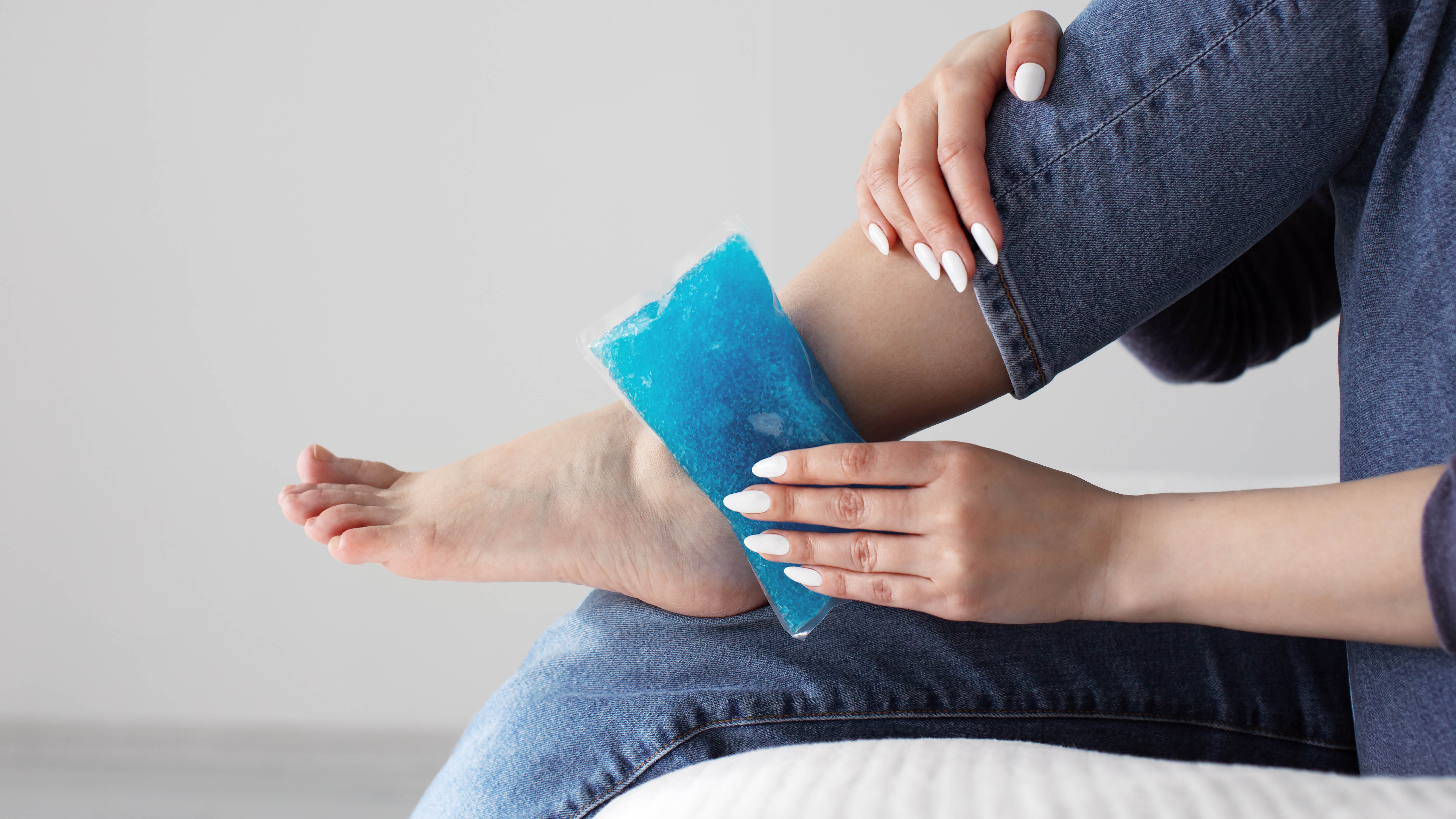How to get rid of mosquitoes in your home and your yard
Here’s how to get rid of mosquitoes and keep them at bay

Here at Tom’s Guide our expert editors are committed to bringing you the best news, reviews and guides to help you stay informed and ahead of the curve!
You are now subscribed
Your newsletter sign-up was successful
Want to add more newsletters?

Daily (Mon-Sun)
Tom's Guide Daily
Sign up to get the latest updates on all of your favorite content! From cutting-edge tech news and the hottest streaming buzz to unbeatable deals on the best products and in-depth reviews, we’ve got you covered.

Weekly on Thursday
Tom's AI Guide
Be AI savvy with your weekly newsletter summing up all the biggest AI news you need to know. Plus, analysis from our AI editor and tips on how to use the latest AI tools!

Weekly on Friday
Tom's iGuide
Unlock the vast world of Apple news straight to your inbox. With coverage on everything from exciting product launches to essential software updates, this is your go-to source for the latest updates on all the best Apple content.

Weekly on Monday
Tom's Streaming Guide
Our weekly newsletter is expertly crafted to immerse you in the world of streaming. Stay updated on the latest releases and our top recommendations across your favorite streaming platforms.
Join the club
Get full access to premium articles, exclusive features and a growing list of member rewards.
If you’re looking up how to get rid of mosquitoes, odds are there’s a familiar buzzing sound in your home. Mosquitoes are frustrating to say the least— should one go under the radar, it can bite you and leave behind an itchy rash which can be irritating for days. These insects can spread fatal diseases, such as malaria or dengue on contact too, so it’s essential that you avoid bites and deal with any rogue mosquitoes where possible.
There are small steps you can take to discourage mosquitoes — in fact, we’ve found 9 plants that repel mosquitoes But, if you want guidance on how to get rid of mosquitoes, we’ve rounded up the best methods to deter these insects from your home and yard. We will cover home remedies as well as how to get rid of mosquito bites. So you can finally get a good night’s sleep without fear of bites in the morning.
Here's 7 things that attract mosquitoes to your yard. Plus, mosquitoes are one of the 5 pests that bite you in your sleep. Also, here's how to avoid tick bites this summer.
How to get rid of mosquitoes in your home
Before you take action, you need to be clear on whether you’re dealing with the odd mosquito or a full-blown infestation. Mosquitoes love dark, humid environments, so check under sinks and in your laundry room for signs of an infestation. Mosquitoes don’t build a nest like other insects, but there will be a high number of them where they’re breeding.
Whether you suspect an infestation or you’re only dealing with a few of these pests, you’ve got a couple of options. In fact, you don’t have to kill the mosquitoes, especially if you’re only dealing with a handful. You can deter them from your home instead. Here’s some natural remedies which have been known to work.
1. Essential oils
Mix a few drops of essential oils, such as peppermint or citronella, with a cup of water in an empty spray bottle and apply around the home to deter mosquitoes. These oils as well as others, such as lavender and lemon eucalyptus, can also be applied directly to the skin to repel mosquitoes, although be sure to patch test first.
2. Candles
Likewise, you can invest in candles which contain similar scents to make mosquitoes steer clear. Lavender candles are widely available and mosquitoes hate this smell. Although do not leave a lit candle unattended and do not leave it burning as you sleep.
Get instant access to breaking news, the hottest reviews, great deals and helpful tips.

3. Coffee grounds
The smell of burning coffee grounds is also known to repel mosquitoes. To do this, just lay out your coffee grounds in a bowl or tray and light them as you would incense. Just be sure the space is safe for this method and watch the smoke doesn’t set off your fire alarm.
4. Switch on the fan
Mosquitoes are actually pretty weak at flying, so if you’ve got a strong breeze circulating your room, they’re unlikely to try to fly in it. Switch on your oscillating fan or use one of the best air purifiers as a fan to do two jobs at once.
5. Invest in the right plants
Certain plants contain oils which will repel mosquitoes. Strategically place catnip, lemon thyme, mint, lavender, rosemary and citrosa around your home to keep the mosquitoes at bay.
6. Place a net around your bed
If you find you’re mostly being bitten in your sleep you can always buy a mosquito net to hang over your bed, such as the Even Naturals Luxury Mosquito Net ($23.99, Amazon.
7. Buy the right insecticide
If you’re dealing with an abundance of mosquitoes, a dedicated insecticide may be the way to go. You can find indoor-safe foggers and aerosols in most home department stores, some of which will be safe to use around children and pets, such as the Ortho Home Defense Mosquito Killer with Essential Oils Aerosol ($22.98, Amazon

8. Break out the fly swatter
If you’re just dealing with the odd mosquito, you can always go back to using a manual fly swatter. Bug zappers can also be used around the home to eliminate any strays, such as the Zap It! Bug Zapper Rechargeable Bug Zapper Racket ($39.99, Amazon).

9. Try a mosquito trap
If you don’t have the patience for swatting, you can also buy a dedicated indoor mosquito trap. These devices tend to lure and trap mosquitoes using a combination of light and suction. The Katchy Indoor Insect Trap ($39.99, Amazon) is an example of this.
10. Seal off any entrances
Once you’ve dealt with your mosquito problem, you’ll want to stop them from coming back. Inspect your doors and windows and seal off any potential entryways. Replace any damaged window screens and invest in screen doors if you don’t already have them.
Be sure to check out 7 ways to prevent mosquito bites at night for more tips and tricks. If none of the above deals with your mosquito problem, you may need to call in a professional to help.
How to get rid of mosquitoes in your yard
1. Remove standing water
You may have an abundance of mosquitoes in your yard because it makes for ideal living conditions. Remove any standing water, cut down your grass and clear away any debris. Standing water will attract mosquitoes because that’s where they lay their eggs. So empty and clean your bird baths and eliminate any small puddles.

2. Introduce predators
Dragonflies are a natural predator to mosquitoes. A water feature will generally help attract dragonflies to your yard, as will rocks on which they can sun themselves.
If you own a pond, certain fish, such as goldfish, will also eat mosquito larvae which can help reduce the population. You can also add a larvicide to pond water, although be sure to check it won’t hurt any existing fish. Keep the water rotating as well with a pump to deter mosquitoes.
3. Use home remedies
Much like treating mosquitoes indoors, many of the same techniques can be applied outdoors to create a barrier. Lavender candles can be effective for deterring mosquitoes at short range, while oscillating fans can prevent them from flying. Plants with natural oils which will deter mosquitoes can also feature in your garden, such as mint and catnip.
4. Use an insecticide
Outdoor foggers and aerosols can be purchased from most home department stores. We recommend opting for one with a plant-based formula rather than chemical, such as the EcoSMART Mosquito Fogger ($13.29, Amazon). Whichever insecticide you choose, make sure you follow the instructions and safety guidelines. Apply where there’s likely to be a high population of mosquitoes, such as in sheds and garages.

5. Protect yourself
Remember to apply mosquito repellent to your skin when necessary and to re-apply it once it wears off. The CDC recommends you use EPA-registered insect repellents and wear long-sleeved shirts and pants for best protection.
You should not use products which contain lemon eucalyptus oil or para-menthane-diol on children under three years old. You should also not apply the repellent to young children’s hands, eyes, mouth or any part of the skin which is cut or irritated.
6. Invest in a trap
There are different types of mosquito trap available on the market for both indoor and outdoor use. But, these will usually attract mosquitoes using either a light or scent and then trap or kill them on contact with electricity. More advanced ones will vacuum in the insects as they draw near.
Katchy Indoor Insect Trap: now $33 @ Amazon
If you're after an effective, mosquito repellent, this insect trap will do the job. The UV blue light attracts flying bugs to it , which will then be trapped on the glue pads underneath. Then you simply remove the glue pads to dispose of when necessary. A fast way to get rid of mosquitoes.
How to get rid of mosquito bites
Unfortunately, even if you take every precaution with preventing mosquitoes, one sometimes slips through and you can still get bitten. It’s always a horrible moment when you realize you can’t stop itching a certain spot and then the skin flares up and you know you’re in for an uncomfortable few days.
The good news is there are certain steps you can take to help reduce the effects of mosquito bites. The CDC recommends the following steps:

1. Wash the bite with soapy water and rinse.
2. Hold a fresh ice pack to the bite for 10 minutes and reapply as necessary. This should reduce the swelling and itching.
3. Combine one tablespoon of baking soda with a few drops of water to create a paste.
4. Apply that paste to the bite and let it sit for 10 minutes before washing away.
5. You can also buy an antihistamine cream at the pharmacy to lessen the itching.
Seek medical attention if symptoms worsen.
You might also want to check out how to get rid of fruit flies quickly if you find any at home. We've also covered how to get rid of ladybugs, how to get rid of roaches, how to get rid of gnats, how to get rid of ants and how to get rid of fleas.
If ticks are a problem, be sure to also check out 5 ways to get rid of ticks from your yard.

As the Homes Content Editor, Cynthia Lawrence covers all things homes, interior decorating, and garden-related. She has a wealth of editorial experience testing the latest, ‘must-have’ home appliances, writing buying guides and the handy ‘how to’ features.
Her work has been published in various titles including, T3, Top Ten Reviews, Ideal Home, Real Homes, Livingetc. and House Beautiful, amongst many.
With a rather unhealthy obsession for all things homes and interiors, she also has an interior design blog for style inspiration and savvy storage solutions (get rid of that clutter!). When she’s not testing cool products, she’ll be searching online for more decor ideas to spruce up her family home or looking for a great bargain!
 Club Benefits
Club Benefits











